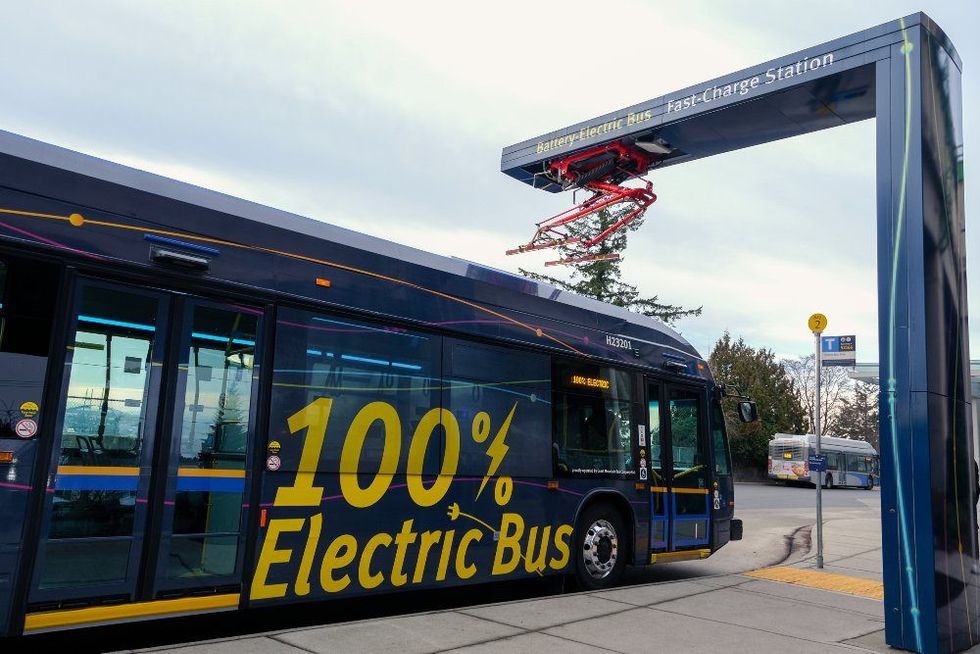TransLink announced improvements to its existing SCRAP-IT program on Wednesday, providing anyone who recycles their old fossil fuel vehicle with a valuable new Compass Card option.
Those who take advantage of the program can now, in exchange for scrapping their vehicle, choose a monthly Stored Value Compass Card valued at $50, provided every month for 16 months -- a total value of $800.
For adults, fares paid via a Stored Value Compass Card cost $2.50 for a one-zone trip, $3.65 for a two-zone trip, and $4.70 for a three-zone trip, which means the incentive amounts to 20 one-zone trips, 13 two-zone trips, or 10 three-zone trips each month, for 16 months.
SCRAP-IT was founded in 1996 as a pilot program, providing customers who recycle their old vehicles with compensation in the form of funding towards environmentally-friendly transportation methods. The program was one of the first of its kind in Canada, and has continuously expanded over the years, providing incentives such as electric vehicle subsidies, carshare credits, cash rebates for e-bikes, and transit passes.
TransLink announced a partnership with SCRAP-IT in October 2021, initially launching with two options: an eight-month Adult 1-Zone Compass Card or a 14-Month Concession 3-Zone Compass Card, both of which are valued at over $800.
"We are facing a climate emergency and we must all take steps to reduce our carbon emissions," TransLink CEO Kevin Quinn said in October 2021, when the partnership was first announced. "Partnerships like this help people make greener, more environmentally-friendly choices. By choosing public transportation you are helping reduce congestion and the region's carbon footprint."
In their Climate Action Strategy, announced in January 2022, TransLink said it was committed to reducing greenhouse gas emissions by 45% by 2030 and hitting net-zero by 2050. Their plans detailed a multi-pronged approach that includes encouraging transit use -- as opposed to car dependency -- as well as making investments towards replacing TransLink's diesel-fueled buses with ones that are electric-powered.

Earlier this month, TransLink unveiled the first of its 15 new Nova LFSe+ electric-battery buses, which can travel up to 150 kilometres on a single charge, be topped off by charging stations in five minutes, and save approximately $40,000 in fuel costs annually, per bus.
READ: "100 Small Things": How The Stack and M5 Prototype Got to Zero Carbon
When the partnership with TransLink was announced in 2021, SCRAP-IT CEO Diane Roberts reiterated the importance of climate awareness, as well as the benefits of the incentive program.
"British Columbians know about the climate emergency and may be considering what they can do that will make a difference," she said. "Our program gives them the opportunity to make the switch to a cleaner form of transportation and make that transition much more affordable. It's a win-win for the environment and their own pocketbook."





















